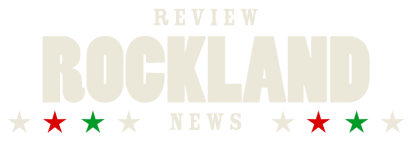Since the first reported case of monkeypox in the United States on May 18, HHS has communicated public health information about the virus to patients and health care providers, provided access and substantially increased supply of vaccines and treatments, and significantly expand the availability of tests. HHS has distributed nearly 200,000 JYNNEOS vaccines in recent weeks, accelerated the inspection of approximately 800,000 vaccines for delivery this summer while procuring millions more for delivery in mid-2023, and ensured that tens of thousands of tests per week would be available to physicians and patients.
Over the coming days and weeks, HHS will continue to strengthen and accelerate its strategy on combatting monkeypox and work closely with public health officials and stakeholders in high-risk communities to get vaccines, testing, and treatments out to communities across the country.
Within days of the first case of monkeypox in the U.S., HHS activated a multi-pronged response, significantly increasing vaccines, tests, treatments, and awareness.
Delivering vaccines to jurisdictions while significantly increasing supply: Within days of the first confirmed case, HHS began delivering vaccines to states and jurisdictions in need. Simultaneously it took decisive steps to increase future vaccine supply. To date, HHS has made 374,000 vaccine doses available for ordering and delivered over 191,000 of those doses to state and city health departments for free. When factoring in doses already delivered to the SNS, those pending at the supplier, and replacement doses, the federal government will have access to more than 6.9 million doses by mid-2023.
- 2,400 doses of the JYNNEOS vaccine were available in the immediate holdings of the Strategic National Stockpile (SNS) at the onset of the current outbreak. JYNNEOS – and another vaccine, ACAM2000 – were delivered to states and cities within five days of the first case to reach those most at-risk from known prior exposure.
- 72,000 additional U.S. government-owned doses were requested by HHS’s Biomedical Advance Research and Development Authority (BARDA) from the JYNNEOS manufacturer Bavarian Nordic – 36,000 on May 20 (within two days of the first confirmed case) and another 36,000 on June 10.
- 300,000 filled and finished government-owned doses were ordered to be shipped in June from Bavarian Nordic’s facility in Denmark.
- 500,000 additional doses were ordered by BARDA to be produced from government-owned bulk material in June.
- 786,000 additional government-owned doses were physically inspected in Denmark during the week of July 4 and prepared for shipment and deployment by the end of the month. This inspection occurred months ahead of schedule because the Food and Drug Administration (FDA) expedited the application and necessary inspection – which were previously planned for Fall 2022 – soon after it learned of the first monkeypox case in the U.S.
- 5 million additional vaccine doses have been ordered by BARDA since the start of the outbreak, bringing the total available supply to 6.9 million, with deliveries continuing through mid-2023.
- The Federal government was able to provide and secure vaccines and treatments that offer protection against monkeypox because of strategic investments in preparing for a smallpox incident that have been made by the HHS Office of the Assistant Secretary for Preparedness and Response’s (ASPR), through the Biomedical Advance Research and Development Authority (BARDA) and the Strategic National Stockpile (SNS), made prior to the current monkeypox outbreak to prepare for a smallpox incident. These investments include BARDA support for the development of the JYNNEOS vaccine.
- Increasing available testing through commercial labs: Due to prompt Federal action, testing capacity has also rapidly increased from 6,000 tests per week at the beginning of the outbreak to up to 80,000 tests per week today.
- From the earliest days of the outbreak, the Center for Disease Control and Prevention’s (CDC) Laboratory Response Network – an existing network of public health laboratories that can respond to public health emergencies – provided state and local health departments a way to test and identity monkeypox cases.
- HHS recognized early on in the outbreak that health care providers and patients needed much more accessible testing and, within days of the first confirmed case in the United States, CDC and FDA began working with five of the leading U.S. commercial laboratory companies to quickly increase testing capacity and access in every community.
- CDC is also engaging directly with networks of providers and physicians to make sure they know that monkeypox testing is available using their existing lab partnerships.
- Making treatment courses available for free: Prior to the start of the outbreak, the SNS held more than 1.7 million courses of TPOXX, or tecovirimat, in its immediate holdings. These treatments have and continue to be made available to states and territories for free.
- Since the start of the current outbreak, CDC has worked with FDA to clarify and simplify the process for accessing TPOXX, streamline post-administration monitoring and data requirements, and make clear to providers that the documentation necessary to access TPOXX can be completed after it is prescribed to patients.
- Educating the public and engaging key stakeholders: CDC and partners across HHS and other Federal agencies have conducted extensive outreach to key stakeholder groups, including working with community health partners and trusted messengers share critical information. An intensive effort has been made to ensure communication with the LGBTQI+ community in multiple cities that have experienced the most cases thus far.
- Since CDC confirmed the first case of monkeypox on May 18 in a Massachusetts resident, it began raising awareness regarding what the public and health care providers should know and do.
- CDC has been in communication with hundreds of organizations, community health centers, provider networks, and stakeholders in the LGBTQI+ community to provide regular updates on vaccine, testing, treatment, and awareness resources, and to hear from individuals on the ground about the current outbreak and how to further improve the response.
- HHS and CDC are committed to continuing this outreach to ensure effective preparedness and response, especially as more data becomes available and as emerging needs are identified that the Federal government can support.
HHS continues to increase vaccine supply and ensure equitable distribution, while making it easier to access treatments
- Adjusting vaccine allocation strategy: HHS has allocated vaccine to states and cities based on both the case burden and the size of the underlying population at highest risk of severe disease and infection. In its most recent vaccine allocation to states and cities, HHS revised its allocation formula to be more reflective of case burden, shifting from a 50% case burden and 50% at-risk model to a 75% case burden and 25% at-risk allocation in order to be most responsive to those communities experiencing the greatest impacts of the virus. HHS will continue to adapt the vaccine allocation strategy with each phase of vaccine allocation and distribution.
- This revised allocation formula has allowed HHS to deliver more vaccines to communities with higher transmission rates, to help stem the spread of the virus and reach at-risk individuals with vaccine, while still ensuring that at-risk populations receive allocations nationally. As of July 10, for example, New York state had been allocated enough doses to provide more than 54% of their eligible population a first dose. In another example, Washington, D.C. has been provided enough vaccine for more than 70% of its eligible population to receive a first dose.
- States and jurisdictions not ordering their full allocation will see those doses move into the federal supply reserve for reallocation to fulfill emergent needs.
- Increasing Vaccine Supply: With the required inspection of the Bavarian Nordic fill-and finish facility now completed, ensuring the high-quality production that is required for vaccines, FDA has permitted the manufacturer to begin shipping a portion of the 786,000 doses immediately while the final FDA approval is provided.
- Making treatments more accessible: CDC recently posted information clarifying the current TPOXX ordering process, making it clear that documentation required to obtain TPOXX can be submitted after clinicians receive the drug and begin patient treatment. CDC and FDA are also working to streamline the post-order documentation requirements to remove barriers to clinicians prescribing treatment to those in need.
- The SNS continues to have ample supply of TPOXX and makes it available at no cost to states and jurisdictions.
Moving forward, HHS is committed to increasing awareness, accelerating vaccine timelines, and widening the pool of eligible recipients
- Accelerating delivery of additional vaccine doses: As FDA completes its review of the Bavarian Nordic facility, HHS’ SNS is preparing to quickly and efficiently distribute the approximate 786,000 doses that would come available pending FDA approval.
- HHS continues to work with Bavarian Nordic to preposition those doses in the US, so they will be available pending the FDA clearance of the facility expected by the end of July
- HHS will announce allocations of the 786,000 doses expeditiously so jurisdictions can immediately make requests and HHS can begin shipping vaccines quickly following expected FDA approval.
- Orders from states and jurisdictions for vaccines are being delivered on average within 30 hours of being placed.
- HHS will seek additional data from jurisdictions regarding vaccine use data.
Originally published at https://www.hhs.gov/about/news/2022/07/21/fact-sheet-us-department-of-health-and-human-services-response-to-the-monkeypox-outbreak.html



